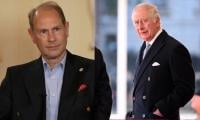ISLAMABAD: The combined opposition Sunday decided to extend conditional support to the government on important legislation, but maintained that it would not cooperate on passage of bills which could benefit individuals.
It decided to cooperate with the government on legislation at the joint sitting of the parliament and wrote a letter to National Assembly Speaker Asad Qaisar, demanding constitution of a new parliamentary committee to review laws including the electoral reforms. The steering committee also rejected the inclusion of federal ministers -- Fawad Chaudhry and Azam Swati -- in the committee on appointment of members of the Election Commission of Pakistan. The meeting, while rejecting inclusion of two ministers in the committee, observed that in the past they threatened the chief election commissioner and therefore, their inclusion was not acceptable.
Responding to a letter of the National Assembly speaker, Opposition Leader in the National Assembly Shehbaz Sharif said one-sided government agenda would not be acceptable to the opposition parties. He urged the government to formulate laws after building consensus through consultations in view of the public interests and suggested constitution of a new parliamentary committee to review laws including those relating to electoral reforms. The opposition leader wrote the letter to the NA speaker after holding a meeting of the steering committee, which was attended by former prime ministers Yusuf Raza Gilani and Shahid Khaqan Abbasi, former speaker Ayaz Sadiq, Khwaja Saad Rafique, Marriyum Aurangzeb, Shiza Fatima, Shazia Marri, Kamran Murtaza, Sherry Rehman and Shahida Akhtar Ali.
The letter said the bills, passed by the National Assembly, and not by the Senate, sent to the joint sitting, should be considered by the new committee. “We believe that consensus is needed on issues of national importance and that parliamentary procedures and traditions should be adopted,” the letter said. The letter said the speaker had also formed a committee on legislation on June 23, 2021. The committee was to consider 21 draft laws, passed by the National Assembly on June 10, 2021.
The letter said that three sessions of the committee were held on June 9, August 30 and Sept 9, whereas no session was held during the past eight weeks. The opposition said that due to the non-cooperation of the government lawmakers, the terms of reference of regulations could not be finalised, and meanwhile the legal term of proposed drafts had expired or Senate had rejected them. The opposition, in the letter, said the proposed draft legislation had been referred to the joint sitting of the parliament and in which case the purpose of the committee formed earlier on June 23, 2021 by him had been lost.
The letter said that the national interest, especially legislation with wide-ranging impact on people, should be based on consensus and consultation. The opposition proposed that the parliamentary committee, constituted by the speaker, should prepare a package of electoral reforms including the Elections (Amendment) Bill, 2021 with consensus.
The speaker, on directives of the prime minister, addressed a letter to the opposition leader in the National Assembly, seeking opposition’s cooperation in legislation at joint sitting of the parliament.
The opposition also suggested that the new parliamentary committee should be constituted on the basis of the committee formed on July 25, 2014. The letter said the bill passed by the National Assembly, and not by the Senate, and sent to the joint sitting, should be considered by the new committee.
The opposition parties asked the government to mull over the recommendations, tabled by the committee comprising legislators from both houses of the parliament.
The committee should unanimously approve the prescribed reforms after reviewing it. The opposition suggested constituting a committee like the previous one, which was constituted on July 25, 2014. That committee had held 117 sessions besides unanimously approving electoral reforms on Nov 20, 2017.
Separately, Federal Minister for Information and Broadcasting Fawad Chaudhry Sunday said the electoral reforms were part of the national agenda and not of a particular individual or party.
He took to his official Twitter handle to state that electoral reforms were not “the agenda of Imran Khan or Pakistan Tehreek-e-Insaf,” but were a national agenda.
Fawad said all political parties should move forward towards electoral reforms. “It will be a great success for our political system if an electoral system is set up under which all the leaders are able to trust election results,” he said adding that the government was consulting the opposition parties and making efforts to develop consensus on the reforms.
Also, Federal Minister for Science and Technology Shibli Faraz said on Sunday that all the bills [related to electoral reforms, the Electronic Voting Machines (EVMs) and other issues] will be passed in the Parliament in the next week.
“After a briefing on the matter, all the allied parties have been convinced [to support the ordinance and bills],” said Faraz, while informing media about consultations between the ruling party and its allies.
The PTI allies, PMLQ and MQMP, had expressed their concerns over the new legislation, proposed by the government and complained of being "kept in the dark" over important decisions.
The differences among the coalition partners emerged when the government postponed the joint sitting of the Parliament due to a lack of consensus over the bills to be placed for passage.
To discuss and mitigate the reservations of the allies, the ruling PTI party also called a meeting for Monday (today), according to government sources.
On Sunday, Faraz reiterated that bringing transparency in the electoral process was impossible without the use of modern technology as he asserted his support for the Electronic Voting Machines (EVMs).
The minister said that the Opposition parties’ alliance — the Pakistan Democratic Movement (PDM) — was politicising inflation.
“PDM wants to oust the government by capitalising on inflation, but it will fail,” said Faraz, adding that inflation was rising on a global level and Pakistan was just another country that was affected by it.
He said that PDM wants to benefit from every crisis but it neither had the solution for the problems of people nor did it have an alternative option to control inflation. Faraz said that the “economic situation of Afghanistan is worrisome”, adding that international forces must play their part in the Afghan crisis.
Khawar Manika's counsel continued his arguments on Wednesday in a petition filed by Imran Khan and Bushra Bibi
IHC reserved judgment on the petition against registration of cases against former interior minister Sheikh Rashid on...
Saudi woman who was reportedly kidnapped from Islamabad’s residential Sector F-8 in mysterious circumstances, has...
Pakistan Navy warship rescued 8 Iranian fishermen after their boat caught fire in the open sea
SC dismissed appeal against SHC order that turned down application of partner seeking extension of time to furnish...
Executive board of International Monetary Fund will meet on April 29 to discuss the approval of $1.1 billion funding...







